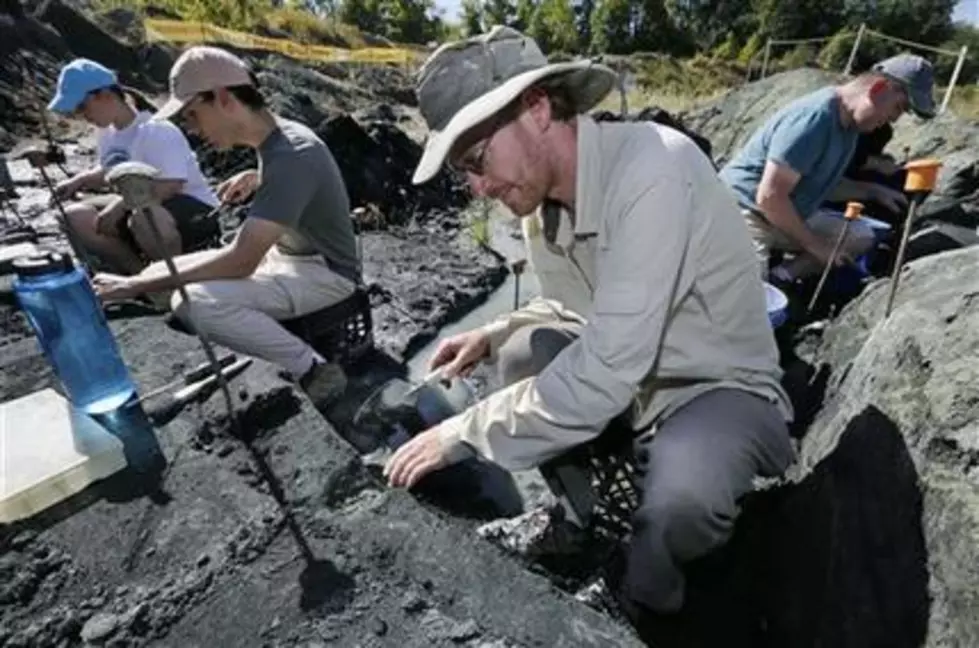
New Jersey university buying quarry for dinosaur research
MANTUA, N.J. (AP) -- Rowan University's latest expansion is creating an opportunity to examine the distant past as well as look to the school's future.
The fast-growing southern New Jersey university announced Wednesday it is buying a 65-acre quarry for $2 million that contains fossils of sea creatures from the era of the dinosaurs.
The property, where marl was mined for water filtration systems for decades until a few years ago, is tucked behind a shopping center.
Tom Carrocino, the president of Inversand, the company that owns the quarry, said the firm has lost millions on it over the past three years as it has kept it open in hopes it could one day be used for research full-time. If the company had turned off water pumps there, it would have become a lake within weeks.
When the sale is complete in the next few months, it will be known as the Rowan University Fossil Quarry. Plans call for building a museum on the property and making it a hub of science education and a centerpiece of a new School of Earth and Environment the university is planning to launch.
The decision to buy the property comes in conjunction with the university hiring paleontologist Kenneth Lacovara. Lacovara found the most complete dinosaur skeleton of its type, in Argentina a decade ago. The plant-eating Dreadnoughtus schranci, found in Patagonia, would have weighed about 65 tons.
Lacovara, who joined the Rowan faculty this month, says research at the quarry could help explain the mass die-off of dinosaurs 65 million years ago. At the time, the site was under the ocean. The vertebrates found there include the remains of ancient sea turtles and marine lizards, called mosasaurs, which could grow to the size of a bus.
He said that the period in which the creatures died was the hottest in the Earth's history and had the highest sea levels, so studying it could also give clues as to how nature might adapt as temperatures and sea levels rise.
One of the benefits of the site, he said, is that children can be brought to it to learn about paleontology, which he called the "gateway to the sciences."
Lacovara said that while other universities have quarries for digging, he doesn't know of any so close to campus -- in this case about 4 miles from Rowan in Glassboro.
The public is already familiar with the site, having been invited over the last few years to annual "dig days" to help look for fossils there. The university says it intends to maintain the property as a center for "citizen science" as well as for trained researchers. The next dig day is Saturday; more than 1,500 people have signed up and another 1,500 are on a waiting list.
Lacovara has been a part of dig days. The Linwood, New Jersey, native earned his bachelor's degree at Rowan, which was then known as Glassboro State College, in 1984. Before joining Rowan's faculty, he was a professor at Philadelphia's Drexel University.
On Wednesday, students used hand trowels and paintbrushes to dig for small fossils at the site even as politicians talked about the plans. Paul Ullmann, a post-doctoral researcher who followed Lacovara from Drexel, said the quarry is unusual because of the density of fossils there. "We know if we just dig under my foot," he said, "we'll find some."
(© 2015 The Associated Press. All rights reserved. This material may not be published, broadcast, rewritten or redistributed)
More From New Jersey 101.5 FM









